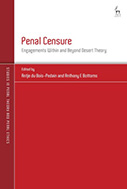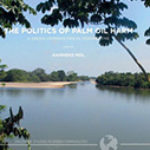Penal Censure: Engagements Within And Beyond Desert

Editors: Antje du Bois and Anthony E. Bottoms
Publisher: London: Hart Publishing, 2019. 328p.
Reviewer: Russ Immarigeon | July 2019
In the 1970s, Andreas von Hirsch, then a senior staff member for the foundation-funded Committee for the Study of Incarceration, wrote the desert-oriented classic, Doing Justice: The Choice of Punishments (Hill and Wang, 1976). In this volume, von Hirsch mentioned the term “censure” only twice. Over subsequent decades, both “censure” and “desert” have been the subject of a steadily expanding literature. In Doing Justice, the Committee for the Study of Incarceration was searching for a justification for the use of “alternatives to imprisonment.” As is widely realized, the overuse of incarceration, evident in the 1970s, has only gotten worse over time, yet any possible linkage among desert, censure, reconciliation, or other overarching philosophical foundations for sentencing practices has largely lost its grip on the day-to-day practices of emerging penal landscapes.
Penal Censure: Engagements Within and Beyond Desert Theory, edited by criminal law and criminology professors Atje du Bois-Pedain and Anthony E. Bottoms of the Center for Penal Theory and Penal Ethics at the University of Cambridge, is the most recent dive into the swelling literature on censure- and desert-based sanctioning. As the most recent volume in the Hart Publishing “Studies in Penal Theory and Penal Ethics” series, du Bois-Pedain and Bottoms have diligently gathered papers originally delivered at a celebratory 2016 meeting honoring the 40th anniversary of Doing Justice’s publication.
Besides the editors, among the notable criminology, legal scholar, philosopher, psychology, and theorist contributors to Penal Censure are John Kleinig, Andreas von Hirsch. Andrew Ashworth, Julian Roberts, Matt Matravers, Christopher Bennett, and Michael Tonry. Overall, the fourteen articles in this volume are divided into three parts covering core issues related to censure’s meaning and justification within state penal systems, various censure-related matters that have been discussed for some time in the literature on desert theory, and broader yet significant issues such as the role of victims’ rights and the treatment of offenses (“historic crimes”) committed well before conviction and sentencing.
More specifically, these articles address the performative, expressive, and communicative dimensions of penal censure; the relevance for censure of resentment and moral education in civil society; the individual developmental containment of wrongdoing; the construction of credible arguments for censure; the integration of “hard treatment” with censure and crime prevention in penal censure; the relationship of penal restraint to penal censure; the meaning and role of repentance in censure theory; the shift from desert to penal censure and its consequences for legal punishment; the justification of sentences harsher than those proscribed through desert theory; the (mis)shaping of the severity of punishment through social convention; the importance of development of a role for victims in penal censure; the offender’s incorporation of criminal behavior into personal social history; and the affirmation of rehabilitation within punishment theory, especially as offender-state dialogues move through stages of remorse, apology, and reconciliation.
The largely Britain-based articles published herein offer substantial – and often spirited – (re)examinations of the development and implementation of desert- and censure-based sanctioning decisions. An argument opening the volume – the arguments of the various authors in this volume do not necessarily align with one another – is that censure emerges from the condemnation and seriousness of wrong-doing, but such censure is constrained through the social norms that characterize courts. A follow-up article stresses the importance of “defensive moral aspirations” and “civility” for remedying troublesome aspects of current criminal justice practice. Critical self-reflection, suggest other articles citing von Hirsch, may serve as “key to moderate and humane punishment” and “the moral basis of an institution of censure.”
In one article, von Hirsch steps out on new ground reconstructing his previous “censure plus deterrence” perspective on punishment with the addition of so-called “hard treatment,” which, he argues, has “a salient role in the censure dimension of punishment’s general justification: that is, as providing a scaling role that acts as the vehicle through which penal censure is expressed.” A subsequent article also challenges von Hirsch’s deterrence-based censure, especially through assessment of the role of mitigation and parsimony, and the adequacy of “defenses against those who believe the ‘prison works’ and who favor severity in sentencing.”
In subsequent chapters, authors examine the promotion of repentance among those punished through a communicative theory of penal censure, the evolution of retributive punishment from static desert to responsive penal censure, and the enhancement of penalties (notably imprisonment) for dangerous offenders, of the normally proscribed “censure-based deserved amount.”
At the core of all sentencing decisions, perhaps, are the following: “Determining just punishments in individual cases is intrinsically difficult and raises conflicts,” one author notes. “Nuanced differences between defendants and suspects, and among offenses, lead practitioners to handle seemingly similar offenses in different ways. Issues of social and racial justice are salient in every courtroom and every country. Whether extreme social and economic disadvantage should provide a defense to criminal charges or an appropriate basis for systematic mitigation is one. Whether evidence of social, racial, ethnic or religious bias in the operation of criminal justice systems should be taken into account at sentencing is another. Whether all infliction of pain including state punishment is evil, as Bentham believed, and should always lead to imposition of the least restrictive possible punishment, or none at all, is third.”
Indirectly but firmly, the articles in this collection are, in fact, a challenging tribute to the extensive work of von Hirsch, especially for his compact ground-breaking essay, Censure and Sanctions (Oxford University Press, 1993). Other tributes, it should be noted, can be found in the more recently published Liberal Criminal Theory: Essays in Honor of Andreas von Hirsch (Oxford University Press, 2014), edited by A.P. Simester, Antijie du Bois-Pedain, Ulfrid Newman, and Andreas von Hirsch.
These fourteen articles, especially through the volume’s extensive footnoting and helpful indexing, also offer a comprehensive guide to, and impression of, the relevant literature and topics that have shaped the interaction of censure and desert over the past fifty years. And, lastly, these articles consistently offer suggestions for those un- or inadequately-addressed but relevant matters that await future treatment.
Russ Immarigeon reviews books for Civic Research Institute publications covering corrections management, sexual assault, and community corrections.


